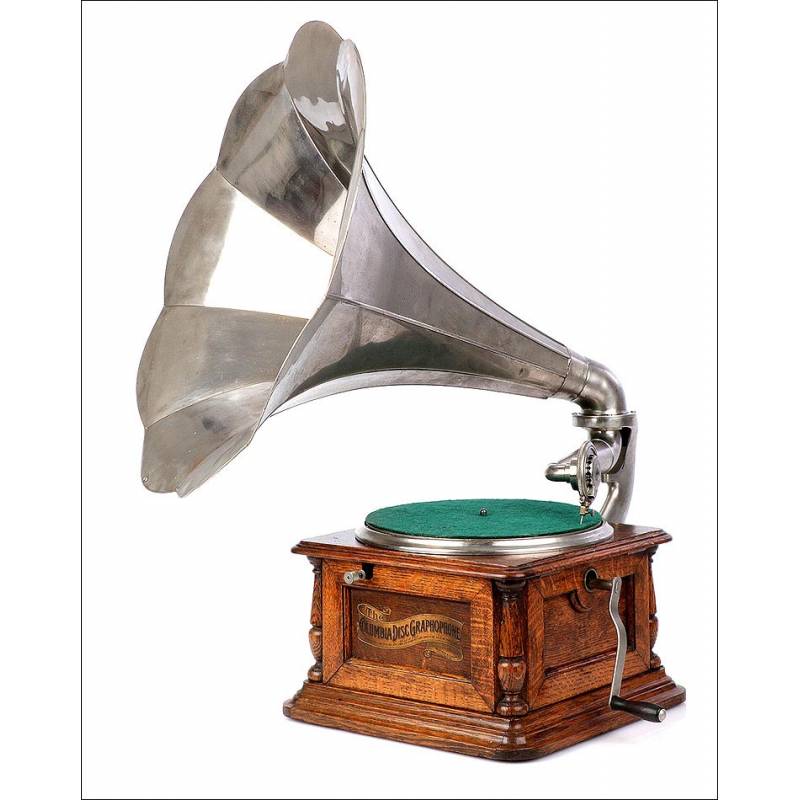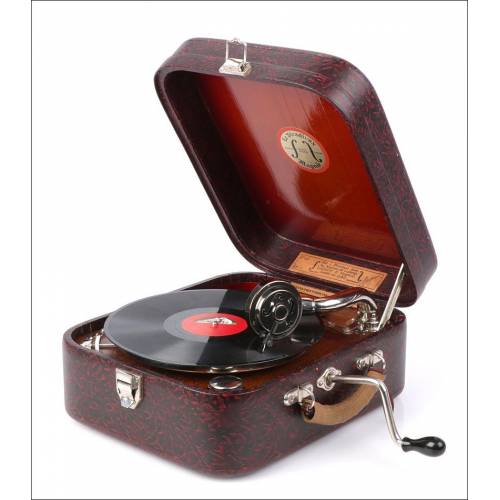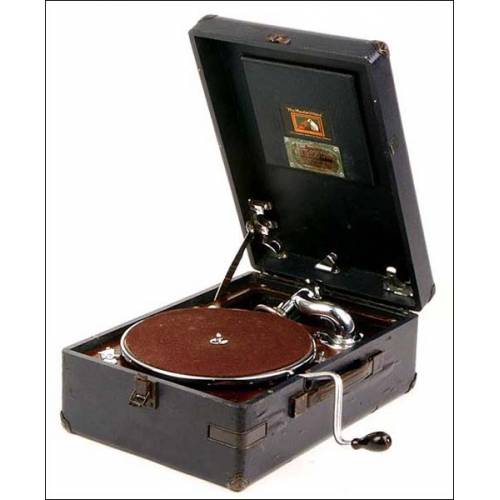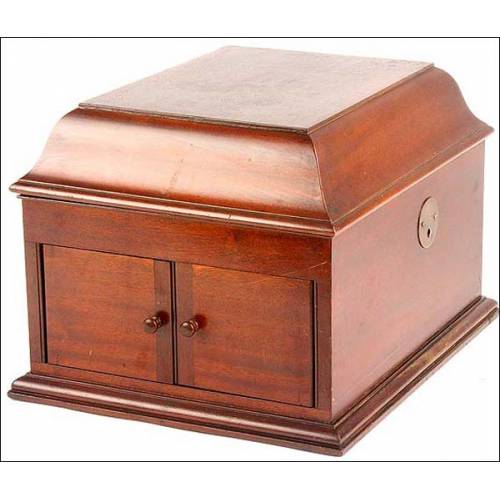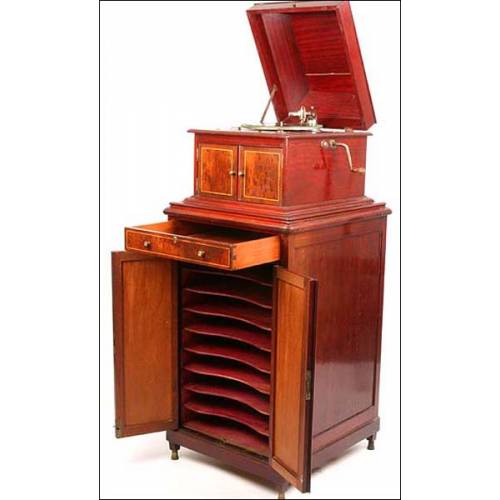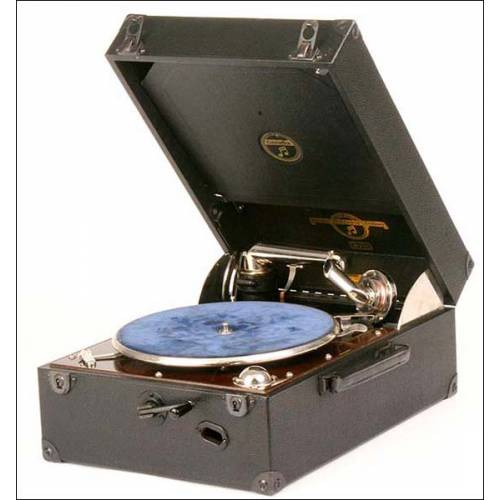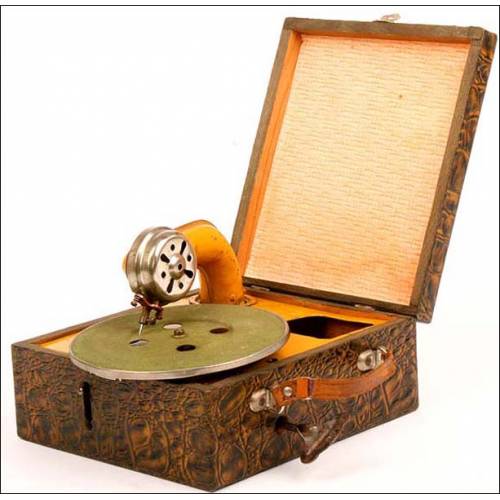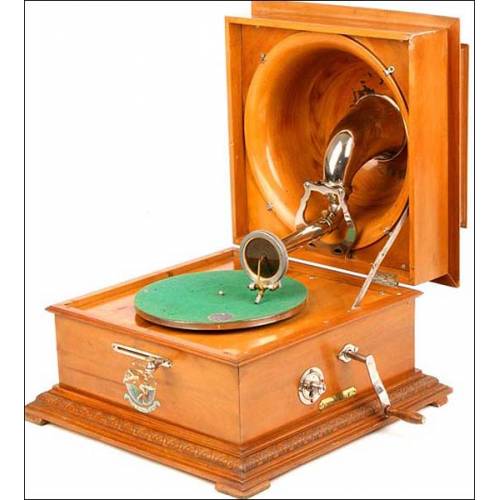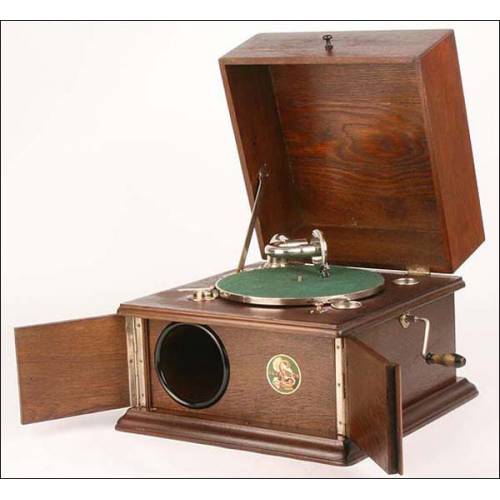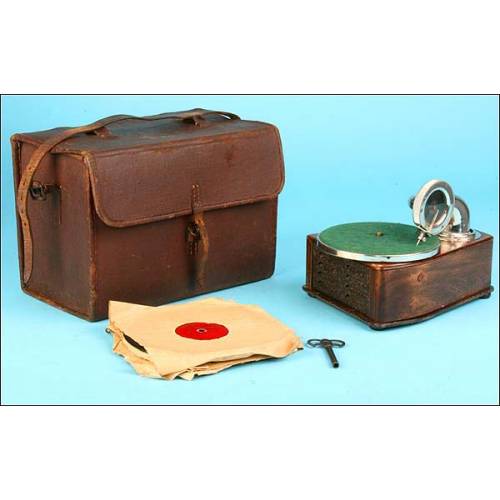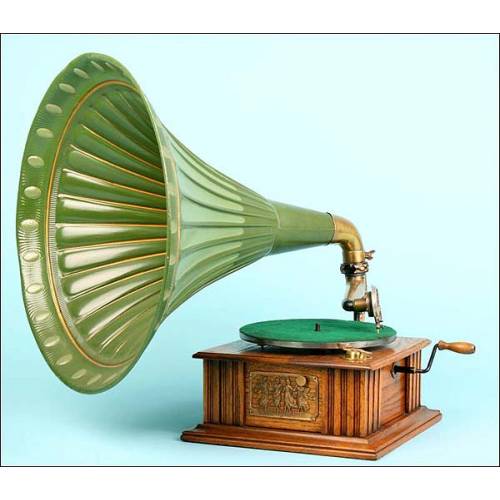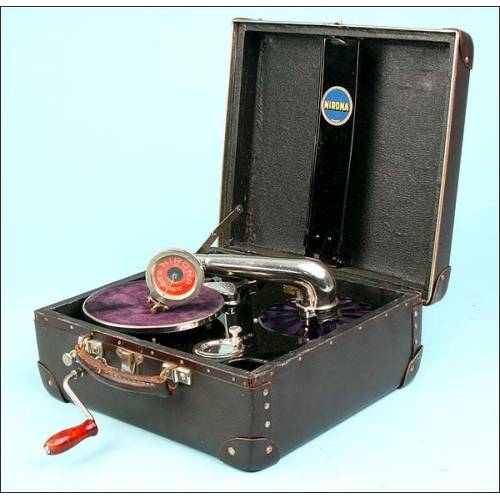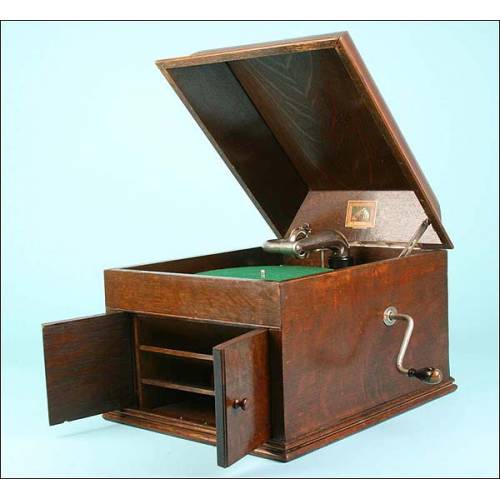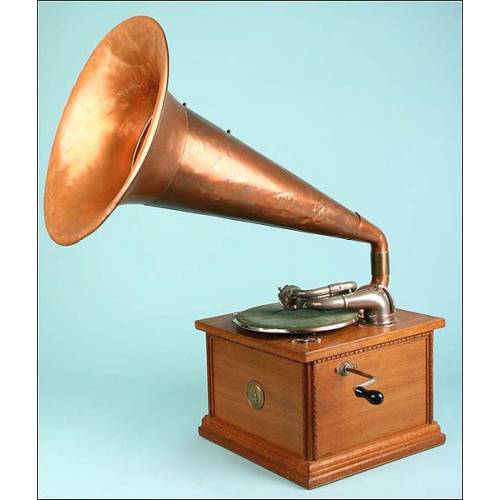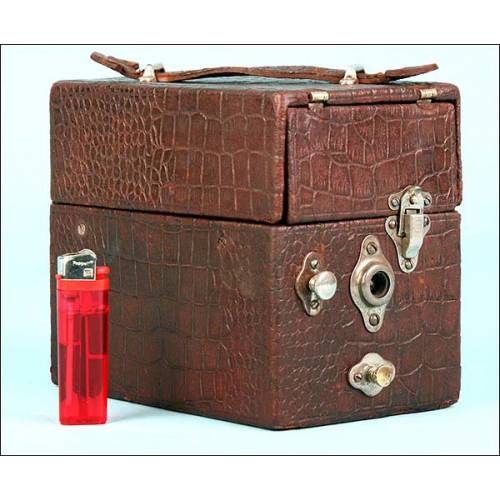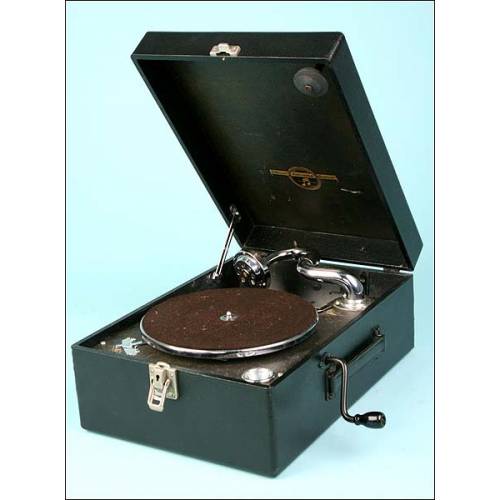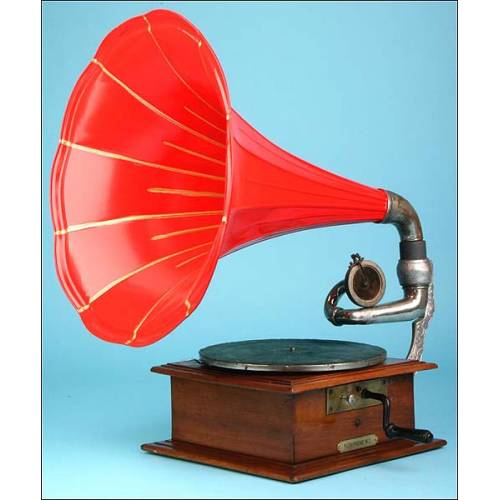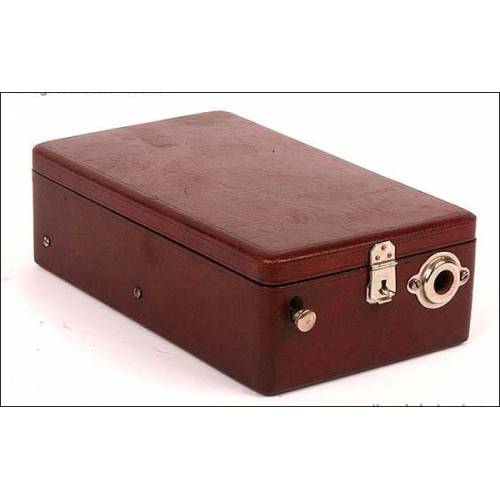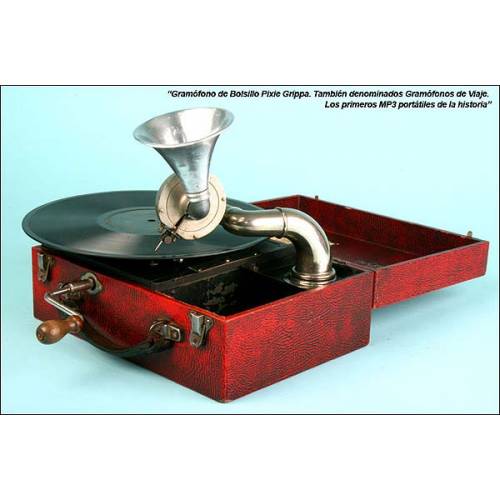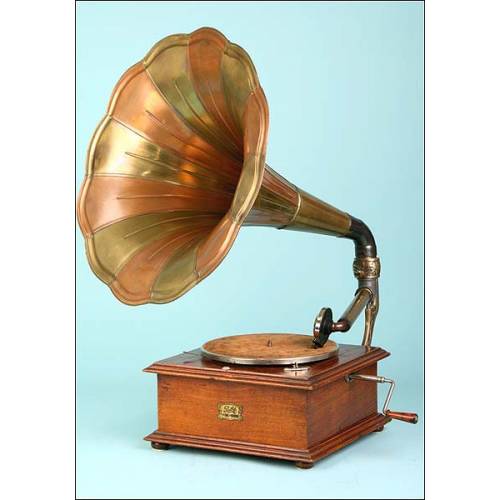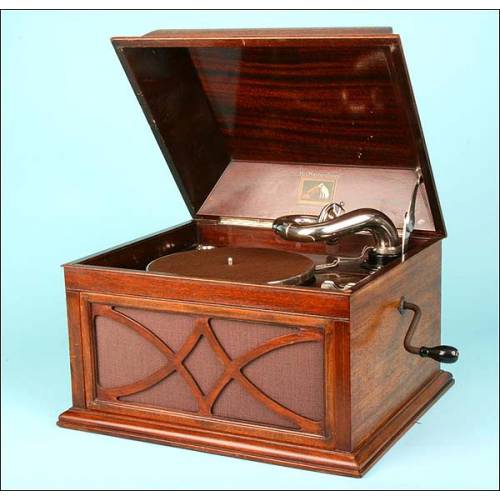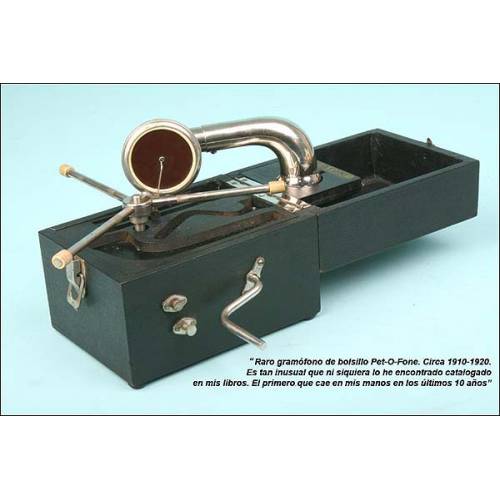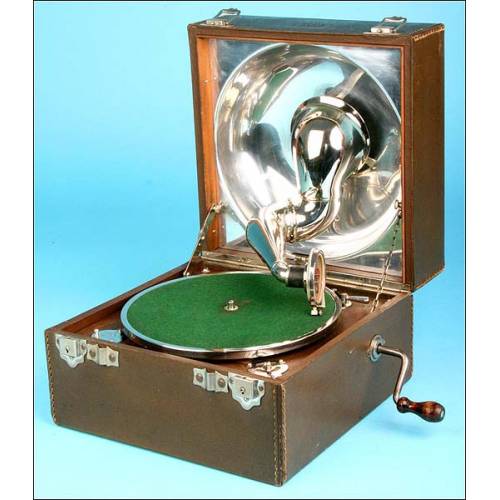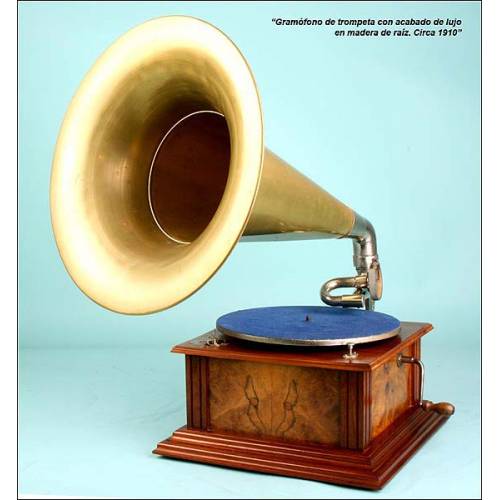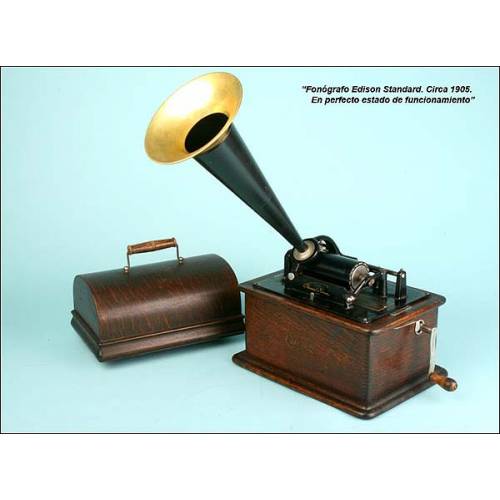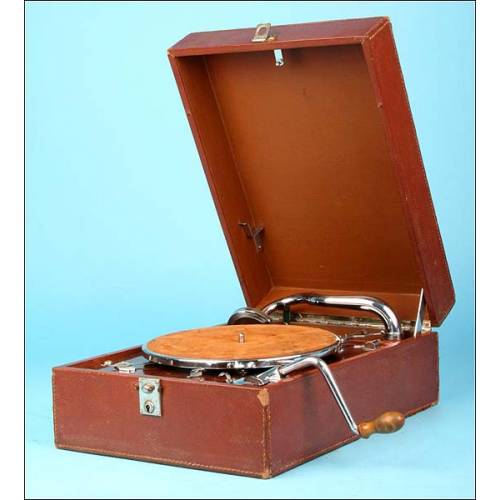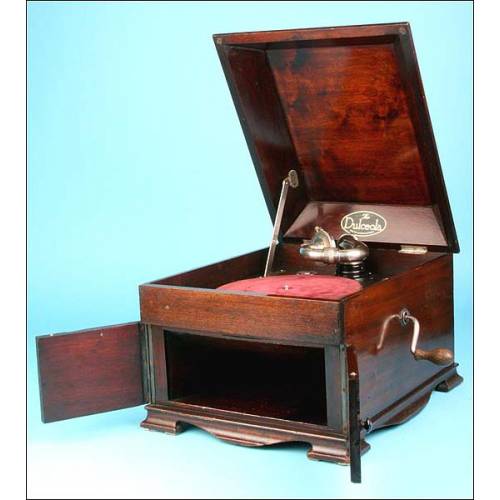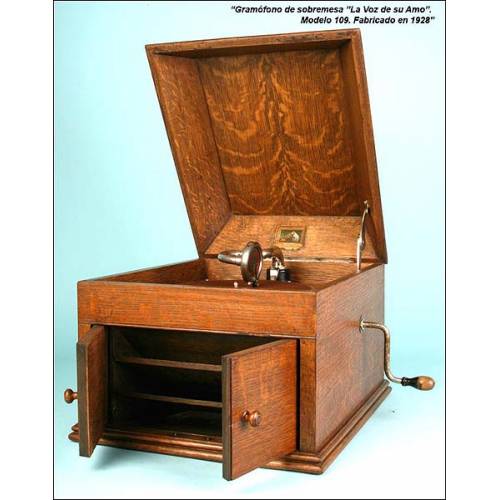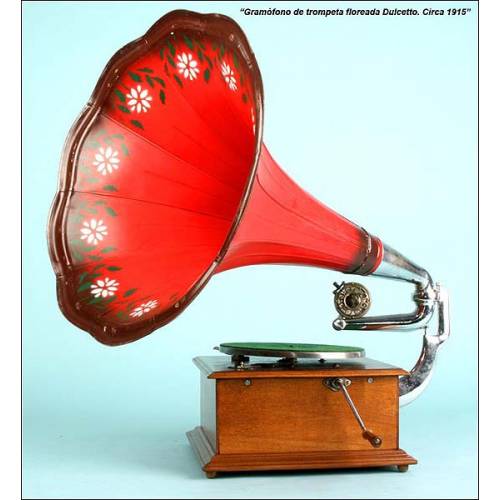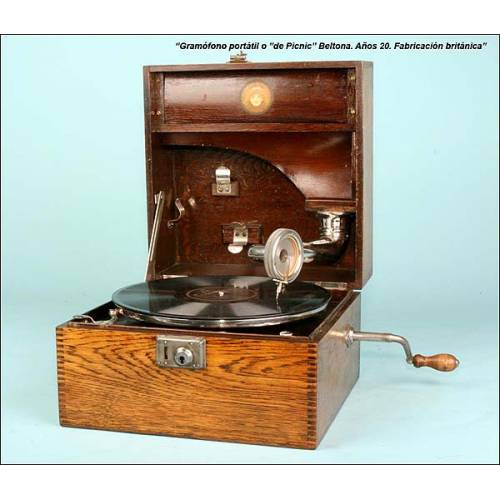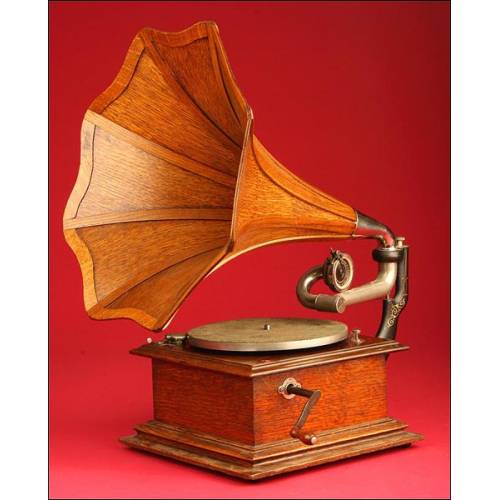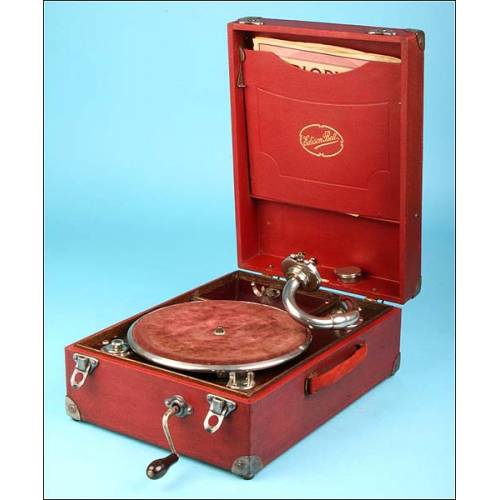C-778
Antique Columbia Sterling Gramophone. USA, Circa 1910
Wonderful Columbia Sterling gramophone in perfect working condition. All the pieces are original. Very beautiful design.
Sold!
Antique Columbia Sterling gramophone made in the United States circa 1910 and in amazing condition. This fascinating device is an entirely original item and preserves all its component parts and pieces, including the top ring, a part that usually no old-time gramophone preserves.Ttoday the gramophone works fine and makes it possible to play records with a lovely sound. The decals stuck to the wooden box are originals and remain in an almost flawless condition, with all the charm and beauty of the design of the era. The box is made of solid oak wood, perfectly preserved and retaining a fine golden brown color enhanced by the fine French-polish finish that protects it. It has a molded base and turned corners with hand-carved columns and recessed decorative side panels. The design is classic, balanced and elegant and provides the gramophone with personality. The front side bears a gorgeous decal with the name of the manufacturing company, The Columbia Disc Gramophone, printed on a band. One of the boxs sides bears also a shield-shaped decal with information about a prize awarded to the brand in the International Exhibition held in Paris in 1900. The reproducer bears the COLUMBIA brand name engraved in the metal and is connected to the horn by a silvery metal arm. The horn is made of this material too; it is a Morning Glory design and shows off a polished, shiny and amazingly preserved surface. As beautiful as original, this antique Columbia Sterling gramophone will stand out in the dining room of any lover of old-time pieces and music. Measurements: Box: Side: 13.2 in / 33 cm. Height: 7.8 in / 19 cm. Horn: Length: 22.8 in / 57 cm. Mouths Width: 21.2 in / 53 cm.Columbia Gramophone Company History The Columbia Gramophone Company (first known as Columbia Phonograph Company) was one of the most important record companies of the world during the 20th century. It was also a pioneer in the manufacture and sale of phonographs and gramophones. In the beginning, in the 1880s they just sold phonographs in Washington; but in 1893 they merged with the American Graphophone Company and started producing phonograph cylinders. In the early 20th century a new competitor emerged: the Victor Talking Machine Company, specialized in the manufacture of phonograph cylinders. Columbia responded by producing both cylinders and records, though in a few years they eventually stopped making cylinders. In 1920 the introduction of radio broadcasting made the company success to decline; things were tough for Columbia until World War II, when it returned to prominence. In the late 1960s Columbia was renamed CBS Records and expanded rapidly. They created a new label, Epic, and in 1968 merged with the Sony Corporation. Together they launched the Compact Disc in 1982. Soon after Sony bought CBS Records; today, the label is still active as part of the Japanese corporation.

